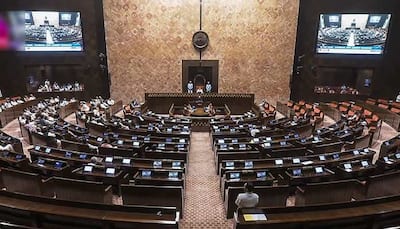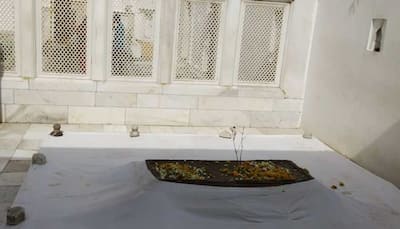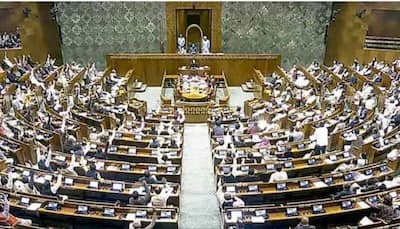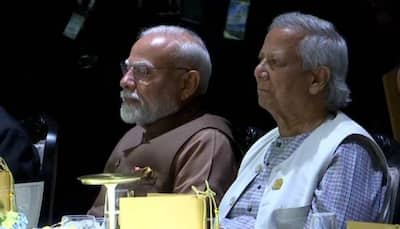Following a debate, lasting over 12 hours, the Lok Sabha early Thursday passed the contentious Waqf (Amendment) Bill, 2025 after a heated exchange of views between the ruling NDA and the opposition bloc INDIA. The marathon debate over the bill in the Lower House saw the BJP-led NDA strongly defending the legislation as beneficial for minorities, while the opposition described it as “anti-Muslim”.
The Bill was passed after all amendments moved by the opposition members were rejected by voice votes. It was passed after a division of votes — 288 in favour and 232 against. In his reply to the debate, Union Minorities Affairs Minister Kiren Rijiju said there is no place in the world safer than India for minorities and they are safe because the majority is entirely secular.
He said even a minuscule minority community like the Parsis are safe in India and all minorities here live with pride. “Some members have said that minorities are not safe in India. This statement is completely false. There is no place safer than India for minorities. I am also a minority and we all are living here without any fear and with pride,” he said after the debate on the Bill.
The minister said whenever a minority community faces persecution, it always comes to India to take refuge and cited the examples of the Dalai Lama and the Tibetan community, minorities of Pakistan, Bangladesh, Afghanistan, Myanmar and Sri Lanka. “Minorities of Bangladesh, Pakistan and Afghanistan came to India after facing religious persecution in their respective countries. How can you say that minorities are not safe in India. Very, very wrong to say this.
“The coming generation will never forgive you. Minorities in India are safe because the majorities of the country are fully secular. This is not the case in Pakistan, Bangladesh and Afghanistan. But still, you abuse us,” he said.
Rijiju said, through the Bill, the NDA government is going to unify all minorities in the country. He also highlighted the “wholehearted” support of the Christian community for the Bill. He said a large number of disputes are pending with the Waqf tribunals and through the legislation, the government wants to expedite these cases. “We want to expedite the resolution of the disputes in the tribunals. Justice delayed is justice denied. Widows, divorcees, and orphans will be given justice through the Bill,” he said.
Earlier, intervening in the debate, Union Home Minister Amit Shah asserted that a vote bank was being created by intimidating minorities and confusion being spread in the country in the name of the Waqf bill. “The Narendra Modi government runs on a very clear principle that we will not bring any law for vote bank because law is for justice and welfare of people,” he said, adding, “Everyone has the right to follow their religion, but conversion cannot be done for greed, temptation and fear.”
He stressed that it has become a fashion to create fear among the people of the minority community. “It is the resolve of the Modi government that no citizen of this country, irrespective of his religion, will be harmed,” Shah said. He said the non-Muslims in Waqf council and boards are meant purely to ensure the administration of properties in accordance with stated aims.
Shah said if there had not been an amendment in the Wakf Act in 2013, there would have been no need to bring this legislation. “Elections were due in 2014 and in 2013, the extreme Wakf law was made overnight for the purpose of appeasement. As a result, 123 properties in Delhi’s Lutyen’s Zone were handed over to the Wakf just 25 days before the elections,” he said. He said a vote bank was being consolidated by intimidating minorities and confusion being spread to strike fear among minorities.
Earlier, there was no provision to include any non-Muslim among those who run religious institutions and the NDA government is not going to do it either, he said.
According to the Waqf (Amendment) Bill, Waqf tribunals will be strengthened, a structured selection process will be maintained, and a tenure will be fixed to ensure efficient dispute resolution.
As per the Bill, while Waqf institutions’ mandatory contribution to Waqf boards is reduced from 7 per cent to 5 per cent, Waqf institutions earning over Rs 1 lakh will undergo audits by state-sponsored auditors.
A centralised portal will automate Waqf property management, improving efficiency and transparency. The Bill proposes that practising Muslims (for at least five years) can dedicate their property to the Waqf, restoring pre-2013 rules. It stipulates that women must receive their inheritance before the Waqf declaration, with special provisions for widows, divorced women and orphans.
The Bill proposes that an officer above the rank of collector investigate government properties claimed as Waqf. It also proposes that non-Muslim members be included in the central and state Waqf boards for inclusivity.
Stay informed on all the , real-time updates, and follow all the important headlines in and on Zee News.








